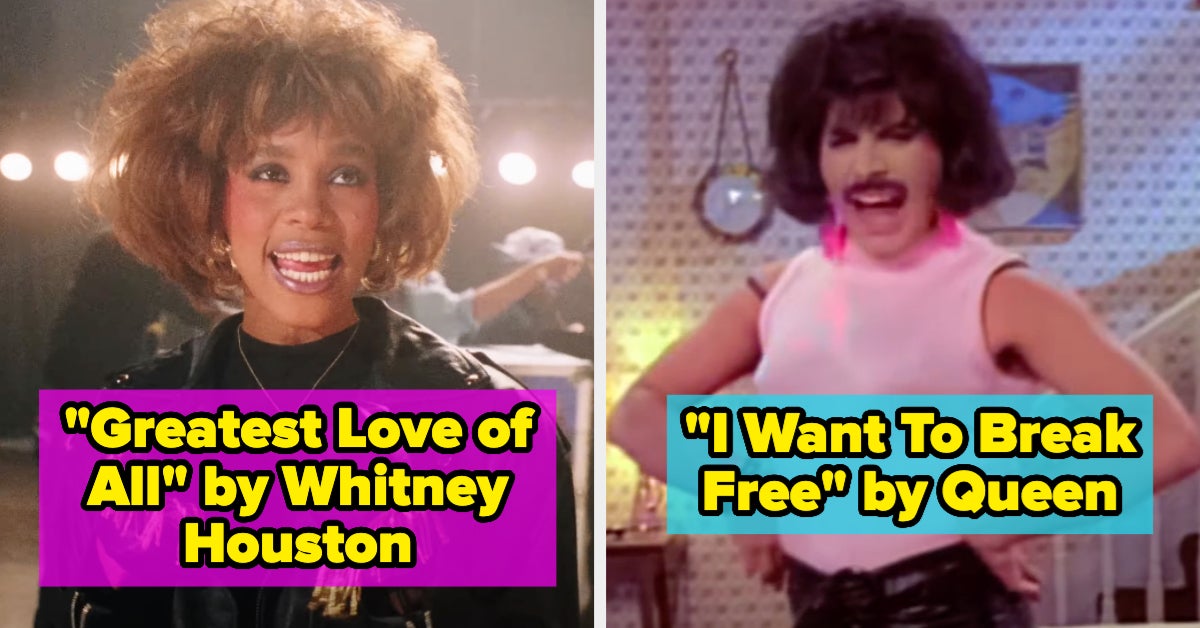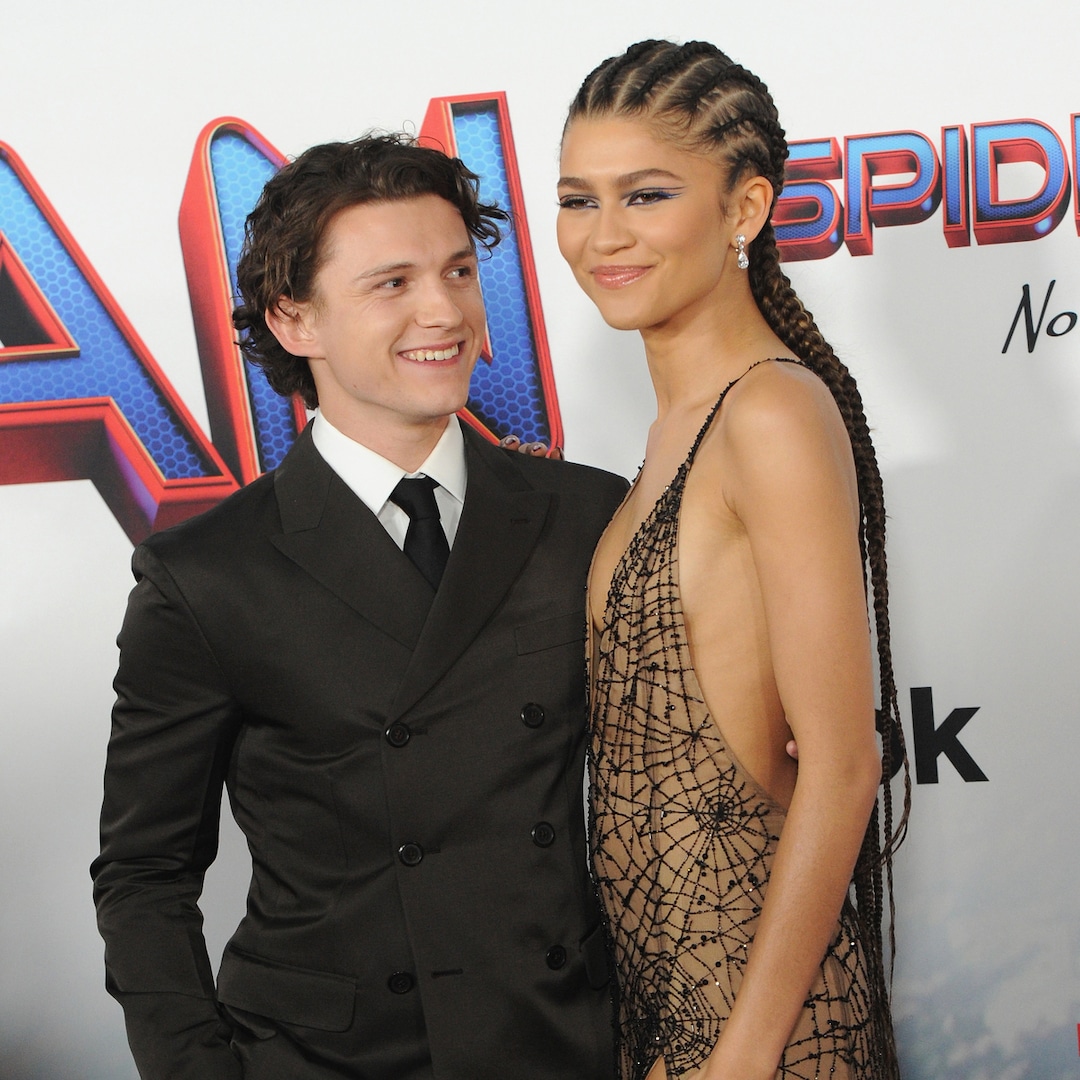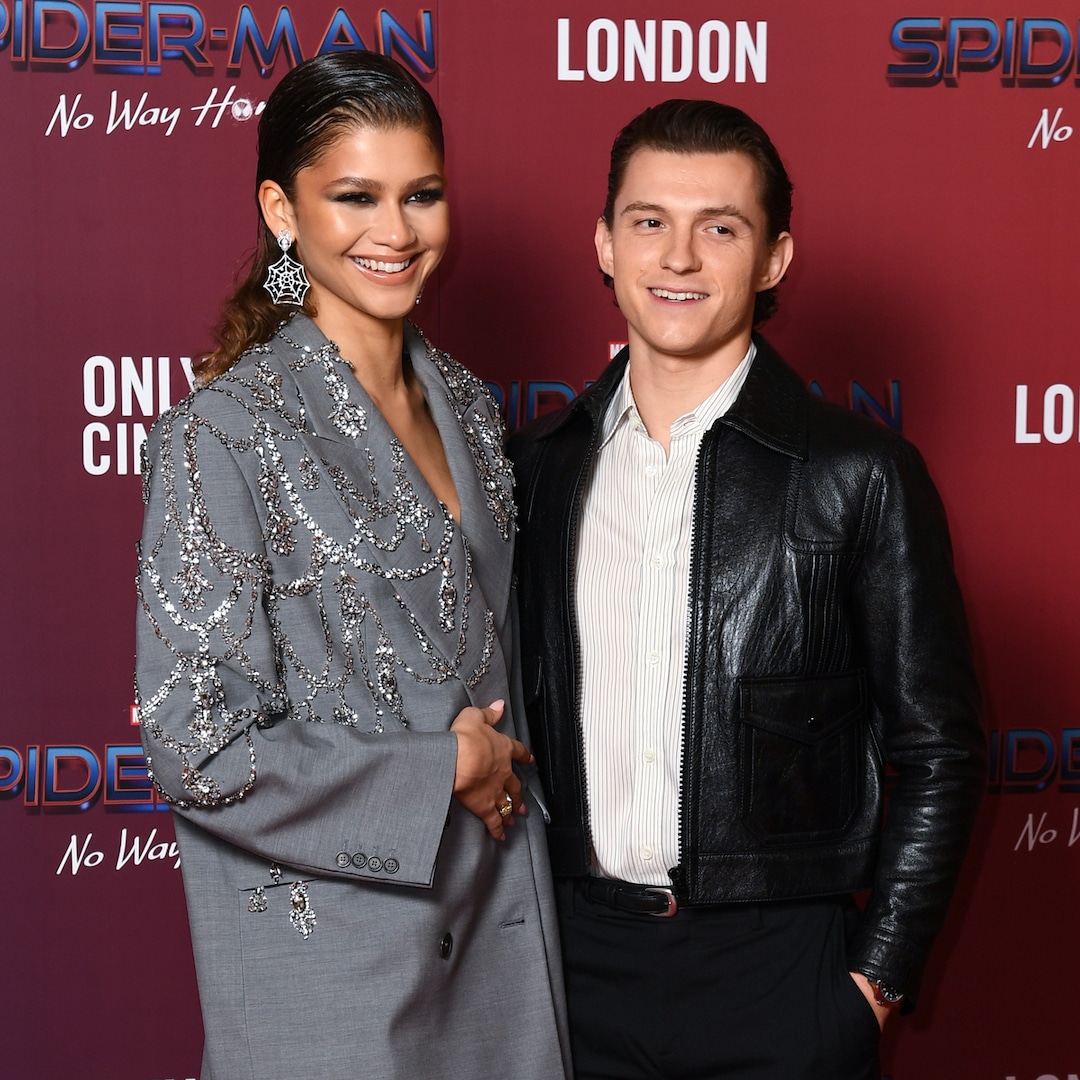
The Pod Generation Director Sophie Barthes Discusses Love, Marriage, and AI
Aug 9, 2023
The Pod Generation is a sci-fi comedy about a couple using an artificial womb to conceive in the near future. Emilia Clarke stars as Rachel, a successful career woman who’s about to be promoted. Her company doesn’t want productivity threatened by a pregnancy. They give her a stipend for the Pegazus Womb Center. Her child can be taken to term in an egg-shaped pod, thus saving her from the burden of having a baby.
Chiwetel Ejiofor co-stars as her botanist husband, Alvy. He embraces nature and despises humanity’s reliance on technology. Alvy’s at first horrified with the idea, but changes his mind and embraces the pod. Rachel soon becomes jealous of Alvy’s connection with the pod. She worries that her maternal instincts are failing.
Writer/director Sophie Barthes took her inspiration from science fiction like Brave New World, George Orwell, and “20 years of marriage.” She believes it’s “the best genre to explore philosophical ideas without lecturing the audience.” The film is a satire on losing humanity for “convenience.” Barthe’s careful not to judge surrogacy or people having issues becoming pregnant. Rachel wants a baby because of “peer pressure” and her company. She “wants to remain competitive in a society that is not supporting having children naturally.”
Alvy’s decision to interact with the pod gave Barthes an opportunity to “flip” gender roles. He sees the pod as a “baby,” while Rachel views it as “technology.” Her character has an AI therapist that looks like a giant eye. Barthes wants to question our dependence on AI and apps. She laments that the future “is blending organic and digital,” where you don’t know if you’re talking to “a machine.” Barthes believes it’s her job as a filmmaker to make people feel “uncomfortable.” Everything has become “a trigger” or “offense.” She feels that “aggressive patriarchal and feminist discourse” has made life more “antagonizing for men and women.”
The Pod Generation was shot in Belgium during the pandemic. Her husband and cinematographer, Andrij Parekh, tested positive but they “voted” to keep him on set. He ended up in “a closet with two masks and a monitor.” He had to instruct Barthes how to light scenes on her iPhone while “feverish and hot.” Barthes praises her leads as talents “able to do anything.” Her best moment on set was filming the climactic birth: “The baby stretched, opened his eyes, and looked at Emilia. He did everything on cue as a newborn, and that was magic.”
Sophie Barthes on Sci-Fi and AI
Vertical
MovieWeb: What was the impetus for writing a film about artificial wombs?
Sophie Barthes: It came from a combination of different things. I remember reading Brave New World when I was a teenager — I’ve always been obsessed with that book — and then George Orwell. I’ve always loved science fiction. Science fiction is the best genre to explore philosophical ideas in a playful way without lecturing the audience. You get to stretch your muscles as a filmmaker and writer, explore strange ideas. Then a lot came from the dreams I had when I was expecting my child. I had a dream journal. A lot of the dreams are in the film.
MW: Growing up in America, we have this exercise that we do when we’re like 12 or 13. They give you an egg, and you have to babysit the egg for a week. This is the first thing that popped in my head, being assigned some random girl in my class, we get an egg, and we have to take care of this egg. If you broke the egg, then you would fail the class. Were you aware of that in American schools?
Sophie Barthes: That’s so funny, because that’s exactly what my husband told me when he read the script the first time. He’s the cinematographer, Andrij Parekh. I didn’t grow up in America. I grew up in Brazil and Argentina. I was going to French school. He was like, “Yeah, we had to do this thing with the egg.” I guess you had the same experience about taking care of that egg. They never asked us to do that in French school. French kids would probably say no (laughs).
MW: Let’s go deeper on the production design, the look of the future. Rachel’s at the walking desk. She’s got the eyeball, that AI therapist. Where did those ideas come from?
Sophie Barthes: It was very important for me and the production designer, Clement Price-Thomas, to make a relatable future. This could happen tomorrow, in five years, or in 10 years. That’s the kind of sci-fi I love. I love Michel Gondry. I love Eternal Sunshine of the Spotless Mind, and even Spike Jonze with Her. It’s a future that you can relate to as a human being. It makes it very tangible. We put a lot of effort to make it a reality that we all know, but there’s something a little bit of stranger. I think future technology is going to be about blending the organic and the digital. Confuse people into not knowing if they’re talking to a machine or a living thing. That’s why the AI looks like a human eye, but it’s just a machine.
Chiwetel Ejiofor and Emilia Clarke
Vertical
MW: Rachel (Emilia Clarke) is concerned about her career. She wants that promotion, and is too busy to carry a child to term. Isn’t that the same as using a surrogate to an extent? What about the infertile who can’t conceive?
Sophie Barthes: That’s the whole satire, whether we’re ready to lose as human beings just for convenience. And is it a good idea? I don’t have the answer to that. I’m not judging surrogacy, because that’s a different topic. Some people cannot be pregnant and really want to have children. But in this case, I made it on purpose that this couple could have a child if they wanted, the natural way. They just decided not to. They decided to go for convenience.
Sophie Barthes: She did it mainly because of peer pressure and the pressure from her company. She wanted to remain competitive in a society that is not supporting women to have children naturally. I’ve read that a lot of companies in America actually give like a $10,000 down payment to female employees to freeze their eggs. So they don’t have to have children immediately, they can postpone the decision. Is that a feminist message? I feel the message was a bit hypocritical, saying if you want to be competitive, then forget being a woman.
Related: Best Sci-Fi and Fantasy Movies of 2022, Ranked
MW: Alvy at first refuses to even consider having an artificial baby. He represents nature in the film, but changes his mind. We see Alvy embracing the pod and carrying it everywhere. This annoys Rachel and she becomes somewhat jealous. Why flip their viewpoints?
Sophie Barthes: I was interested to do a little bit of a subversive thing and exchange the roles. I believe there are a lot of things about the discourse around feminism today, that is antagonizing men and women. Truly enlightened feminism would be to find a way how we can cooperate to make this better for women and for men. A lot of men are also suffering from not being able to show paternal feelings, because it feels too feminine, they’re having to keep it inside. He connects to these pods. He sees a baby in there instead of technology. She can only see the technology. She doesn’t see the baby. It was a way to show the problem from a different angle.
Sophie Barthes: I think the harsh postures are detrimental, the closed patriarchal system, and antagonistic, aggressive feminist discourse. They’re not going to help the cause of either men or women. They’re just going to make us have more conflict and not find a harmonious way to do this together. Women could embrace the incredible power to give birth, and men could be supportive of that.
Sophie Barthes: I was just trying to have fun with what happens when you flip it. He’s the one having all the maternal instincts. She’s feeling left out. It’s always kind of easier for the man. Now, she has this conflict, and feeling maybe she did the wrong thing. She’s not the perfect mother. It’s okay to be the good enough mother, you don’t have to put all this pressure on yourself all the time.
Offended By Everything Until We’re All Replaced
Vertical
MW: Rachel and Alvy use an app to interact with the pod. It made me think of couples going through in vitro. Are you worried about offending those having difficulty getting pregnant and using technology?
Sophie Barthes: People are getting offended about everything today. You can’t talk about anything. That’s why this wasn’t financed in America. It was financed in Europe. Because whatever you touch as a subject, it’s a trigger, or it’s an offense, so that you can’t do your job as a filmmaker. You’re there to make people uncomfortable. Are we saying in our mind to constantly be on phones with apps for everything? I think it’s a little bit crazy […] It’s a satire of extreme capitalism where everything is a commodity. Everything can be sold, you could buy your dose of oxygen to breathe in the nature pod. This was before the toxic cloud in New York. The governor said this was going to be the new normal.
Sophie Barthes: Science fiction is really not science fiction, because all these things are happening. I think it’s healthy to question our relationship to apps. We gave away our orientation abilities to GPS. A lot of people now are unable to orient themselves. That’s something our brain had developed over millions of years. Every time we give away something from our humanity, what’s going to happen in a few decades, are we going to be able to do it? As a journalist, you’ll be replaced with a machine asking me questions. I’ll be replaced as a screenwriter and director by AI generated content. It’s going to be like WALL-E (laughs).
Related: The Best Sci-Fi Comedies, Ranked
A Loving Relationship
Vertical
MW: Rachel and Alvy have their initial differences but always support each other. They have a sweet and loving relationship. Did you ever consider making them more antagonistic?
Sophie Barthes: Based on my experience being married for 20 years, you go through these ups and downs. You have to make it work. It’s never easy, you don’t have the answers, but there is still love. They’re very much in love with each other. They have to make decisions that are difficult in a time when we’re giving that up to machines. Algorithms are making a lot of decisions for us. A lot is inspired by my life. It was wonderful to work with Emilia. They connected immediately. They had really great energy between them. They’re constantly laughing, being playful, and having so much fun with the pod. They’re amazing actors and can do anything. They do a lot of green screen for those huge Marvel movies. He [Chiwetel] can do Shakespeare, slapstick comedy, and Twelve Years a Slave. That’s the sign of such a talented actor. He can do anything, and always with such ease and elegance.
MW: What’s the best and worst day on this film for you?
Sophie Barthes: The worst day was when my husband, the cinematographer, and we’re shooting during COVID time, tested every day, and he got positive. We had to vote on set if he could stay, because usually you had to leave if you’re positive. We voted that he could stay. But he had to stay in a closet with two masks and a monitor. I had my iPhone. He was directing me how to light the scene. He was so feverish and hot in that closet. He was losing his mind.
Sophie Barthes: The best day was when we shot the birth. The babies were like three or four days old on set, and it’s very regulated. You can only have them for one hour. I was just hoping they wouldn’t be sleeping for the birth. We’re so lucky. It was the most wonderful moment, the baby stretched, opened his eyes, and looked at Emilia. He did everything on cue as a newborn, and that was magic. It was a beautiful moment.
MW: We’re having this interview during the SAG-AFTRA strike. What can you say to support your cast who can’t be here to promote the film?
Sophie Barthes: I completely agree with the strikes. We need to regulate artificial intelligence. We have to protect an industry that needs to be made by humans and not by algorithm and machines. The huge question about intellectual property needs to be addressed. I think it’s fundamental that they can make a living as actors and not be replaced by computer generated characters. We need artists. We need to explore the human soul, and only humans can explore the human soul, not machines.
Sophie Barthes: There’s been a lot of deterioration of how writers have been treated by the industry. It needs to be a profession where people can still make a living. Content will suffer. We’ll have movies that are not interesting to watch. If you want to continue having great screenwriting and great content, we need to support screenwriters to do their job. I fully understand why it’s going on, and I hope it’s resolved soon.
The Pod Generation will have a theatrical release on August 11th.
Publisher: Source link
These Are '80s Songs That Gen X'ers And Old Millennials Grew Up On, And There Is No Way Anyone Under 27 Has Heard All Of These
And if you are over 40, then you probably remember when these were brand-new and not songs kids are discovering on TikTok.View Entire Post › Disclaimer: This story is auto-aggregated by a computer program and has not been created or…
Jan 12, 2025
Tom Holland Asked Zendaya’s Dad for Permission Before Proposing
Tom Holland wove the perfect engagement for Zendaya. Less than a week after the Spider-Man actress debuted a 5-carat diamond ring on her left ring finger at the 2025 Golden Globes, Tom's father Dominic Holland confirmed the couple's engagement, sharing a few parts about the special day, including one important detail.…
Jan 12, 2025
Jennifer Lopez Finally Understands Mi Gente Latino Meme
Jennifer Lopez Finally Understands Mi Gente Latino Meme Kicking off 2025, J.Lo is now promoting Unstoppable, a new biography drama in which she stars alongside Moonlight actor Jharrel Jerome. At the 2011 American Music Awards, Jennifer won Favorite Latin Artist…
Jan 11, 2025
Tom Holland's Dad Shares Insight Into Zendaya Engagement
Tom Holland became the greatest showman for his proposal to Zendaya. Just days after the Spider-Man actress turned heads at the 2025 Golden Globes with a 5-carat ring on that finger, Tom's dad... Disclaimer: This story is auto-aggregated by a…
Jan 11, 2025











